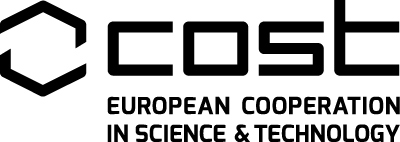Home > COST Action 342: Parking policy measures and their effects on mobility and the economy
Контролеры:
,

Academic degree and current position in TSI: Professor, Dr.sc.ing. Dr.hab.sc.ing, leading researcher of the Engineering Faculty, Director of PhD Programme “Telematics and Logistics”.
Previous Experience: Founder and President of Transport and Telecommunication Institute for over 15 years, Vice-rector for Research and Development Affairs for more than 10 years
Membership: Member of the Joint OECD/ITF Transport Research Committee (OECD – Organization for Economic Co-operation and Development, ITF – International Transport Forum), Member of Institute of Electrical and Electronics Engineers (IEEE), Corresponding Member of Latvian Academy of Science, President of Latvian Transport Development and Education Association, President of Latvian Operations Research Society, Editor-in-Chief of the Journal «Transport and Telecommunication», Member of the board of the Journals “Transport”, “Technological and Economic Development”, “Journal of Aviation Technology and Engineering” etc.
Academic experience: Author of more than 600 academic and research publications, author of 68 patents. Expert of the Latvian Council of Science in Civil and Transport Engineering, Chairman of promotion council for PhD degree in Civil and Transport Engineering, Chairman of Professor Council in Telematics and Logistics.
Teaching at post- and graduate level: 45 years of pedagogical experience in university; courses: Research Methodology (PhD programme); New Trends of Telematics and Logistics Development (PhD programme), Research Methodology (MSc programme), Theory of Systems and System Analysis (MSc programme), Transport Policy (MSc programme), Intelligent Transport Systems (MSc programme), Reliability Engineering (BSc programme) etc.
Participation in projects: has participated in 37 international projects (in 26 projects as national coordinator of the projects) and 26 Latvian research projects and programs (in 23 as head of the projects) within the frame of COST Activities, Horizon 2020, Framework Programs, INTERREG etc.
Research Interests: Transport Telematics and Logistics, Smart Cities, Analysis and Modelling of Transport Systems, Intelligent Transport Systems, Reliability of Electronics Systems, Internet of Things, Cyber-Physical Systems, Information Technology Applications, Electronics and Telecommunication, Decision Support Systems, Avionics, Air Traffic Control Systems and others.
Supervised Doctoral, Master and Bachelor Theses: Supervisor of 9 PhD theses and more than 200 Master and Bachelor theses.
Awards: 2 Gold and 5 Silver Medals of International Research and Innovation Exhibition of Innovators (1985-1990); Honorary title “Latvian Honored Inventor”, Latvian Parliament (1989); Award for Innovative Excellence in Teaching, Learning and Technology, USA (1998); Award and memorial medal for outstanding research in computer science and informatics, Latvian Academy of Sciences (2001); Award and memorial medal for outstanding performance of research in air navigation, communication and radar technology, Latvian Academy of Sciences (2002); Certificate of Recognition as a significant contribution to the research and educational work in the transport, logistics and information technology, as well as on the international success in science, Cabinet of Ministers of the Republic of Latvia (2014); Certificate of Honor of the Latvian Academy of Sciences for research in the field of transport and logistics (2019).

The main objective of the Action is to produce guidelines in order to increase the available knowledge on best practice in parking management and in parking policies and their effect on mobility and the economy. These guidelines will contain information, including examples of case studies, on the effect of the various management measures and policies.
Another important objective of this Action is the dissemination of the knowledge gained through the organisation of international and national workshops, technical visits, participation in congresses etc.
The actual work to be carried out consists of the following steps:
The deliverables of COST 342 will be:
Increasing car-ownership and usage are adversely affecting accessibility to towns and cities as well as other types of business area (e.g. industrial sites, office blocks etc.). The provision of extra road capacity cannot keep up with demand. Other measures such as the reduction of car-use will be inevitable because it is not possible to continue providing extra road capacity. Parking policy is recognised as a potentially important tool in restricting demand for more roads.
It cannot be stressed enough that a good parking policy is an important tool in maintaining and enhancing the ‘urban quality’ of our towns and cities. It also plays an important role in the success of intermodal passenger transport systems. Parking policies have to be implemented by local authorities.
At the local level the perceived disadvantages of reduced parking very often outweigh the estimated effects of enhanced accessibility. The main explanation for this situation is a lack of knowledge on the effects of parking policy measures. Because of this, measures are often taken too little and too late. At the same time much experience and some research results exist concerning parking policies and their effects on car-mobility and the economy. The problem is that the information on these experiences and research is distributed throughout Europe (and America and Japan).
Based on some initial research it can be concluded that combining existing knowledge in a structured and concise way will result in an impressive insight into the effects of parking policy-measures. Since much information is available, the result of a co-ordinated inventory and analysis can almost immediately be turned into guidelines for best practice on parking policy.
A European approach has the advantage of providing a much larger body of knowledge upon which to draw. The greater variety in types of measures and conditions under which they were applied provide a much better basis for developing specific guidelines compared to a national effort only.
Policy makers at the local level will much better be able to estimate and communicate anticipated effects of intended policy measures. Needless discussion can be overcome and the proper policy, given a particular situation, can be selected and agreed upon.
Experts at the local level in charge of the preparation or implementation of a parking policy then have a sounder basis upon which to make their decisions.
Policy makers at the national level can much better estimate what can be done locally to fulfil national formulated policy-goals.